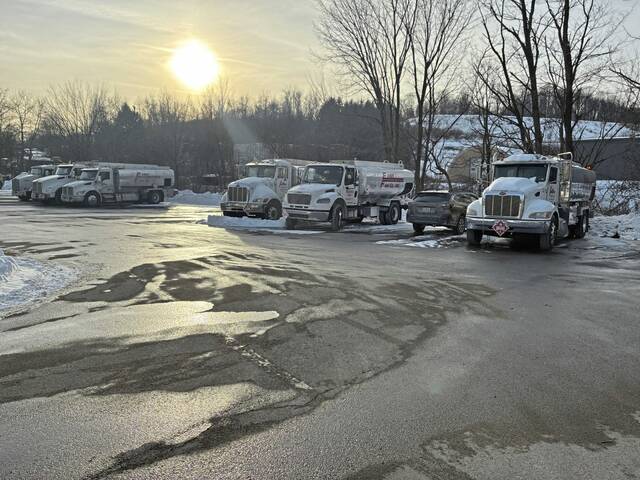National Park Service officials are dusting off the contingency plan from the 2018 federal government shutdown, in anticipation of another closure starting Wednesday.
In southwestern Pennsylvania, the two most-visible areas that could be affected are national parks such as the Flight 93 National Memorial in Somerset County and Fort Necessity in Fayette County.
The House and Senate have been unable to reach agreement on a spending plan to avoid a shutdown. If the federal government closes, national park sites will generally be shuttered, and areas that remain accessible to the public will see services significantly reduced.
Staffing levels would be reduced to the minimum necessary to carry out exempted and crucial functions.
A variety of other federal services and departments would be impacted in the event of a shutdown as well, including:
• Medicare and Medicaid payments would continue — with likely delays.
Medicare and Medicaid programs and services will continue uninterrupted, though staffing shortages could mean delays for some services, like the mailing of Medicare cards. The government has enough money to fund Medicaid for the first quarter of the next fiscal year, according to the Department of Health and Human Services. Also, eligible states will continue receiving payments from the Children’s Health Insurance Program, or CHIP.
• National Institutes of Health research would stall, with patients immediately affected.
Research and patient care at the National Institutes of Health would be upended.
Patients enrolled in studies at the research-only hospital nicknamed the “house of hope” will continue to receive care during a government shutdown. Additional sick patients hoping for access to experimental therapies can’t enroll except in special circumstances, and no new studies will begin.
• Most core Food and Drug Administration missions would continue.
Most of the Food and Drug Administration’s core responsibilities would continue, including responding to public health threats and managing product recalls and drug shortages.
Some routine activities, including previously scheduled inspections of company manufacturing plants, will be halted. But the agency will continue to conduct inspections when it has reason to suspect a problem that could endanger consumers.
• Homeland Security, immigration enforcement would proceed mostly as-is.
Most Department of Homeland Security employees would continue to work, reflecting the fact that so much of the department’s workforce is connected to law enforcement or works in areas funded by user fees as opposed to Congressional appropriations.
• Authorization for the largest residential flood insurance program in the U.S. is set to expire, leaving homeowners unable to access new coverage and potentially wreaking havoc on home sales in flood-prone areas.
Millions of policyholders rely on the National Flood Insurance Program to secure flood coverage that is rarely part of standard homeowners policies and is required for mortgages in areas deemed high-risk. If Congress is unable to pass a spending bill before midnight Tuesday, the NFIP, like much of the federal government, will freeze.
Claims could still be paid, but with two months left in the Atlantic hurricane season and winter weather on its way, homeowners and renters would be unable to buy, renew or add to policies.
Parks impact
According to the contingency plan for national parks, if a facility or area is locked or otherwise inaccessible during non-business hours, it will be locked or secured for the duration of a shutdown. Park websites and social media will not be maintained. Park staff is required to post notices on the first day of the shutdown that no visitor services, maintenance or non-emergency activity will take place.
At parks with areas physically accessible by the public, staffing levels will vary, according to the plan.
Park roads, lookouts, trails, campgrounds and open-air memorials will generally remain accessible to the public.
The Associated Press contributed to this story.








